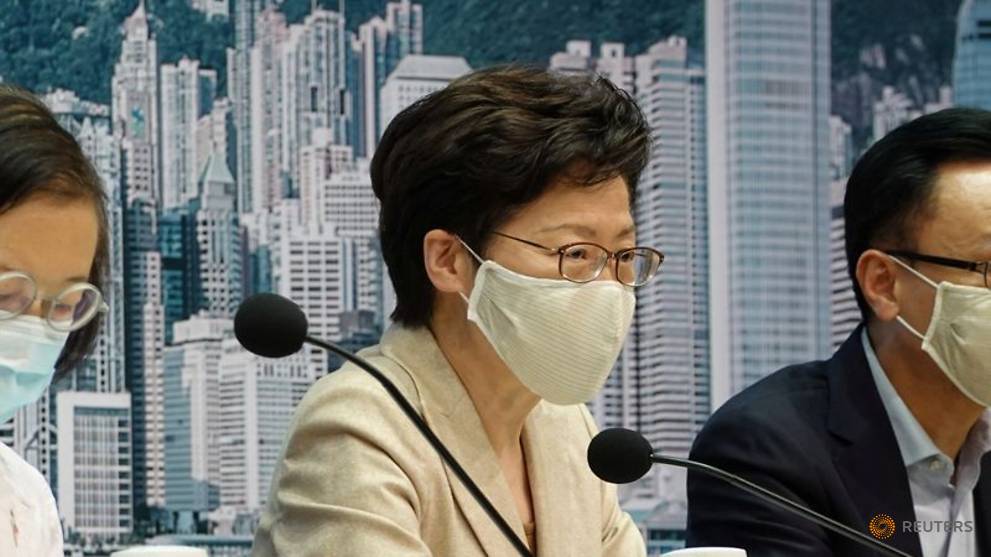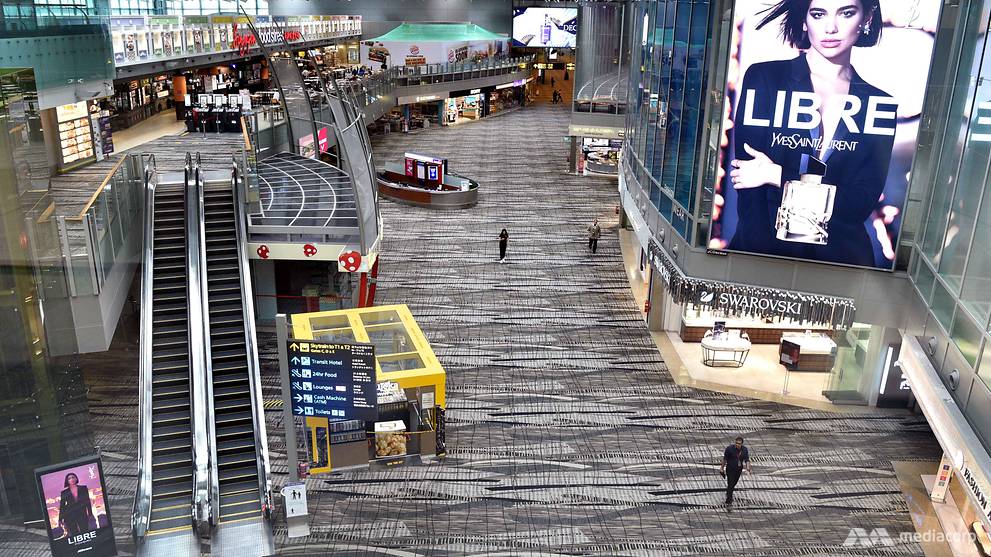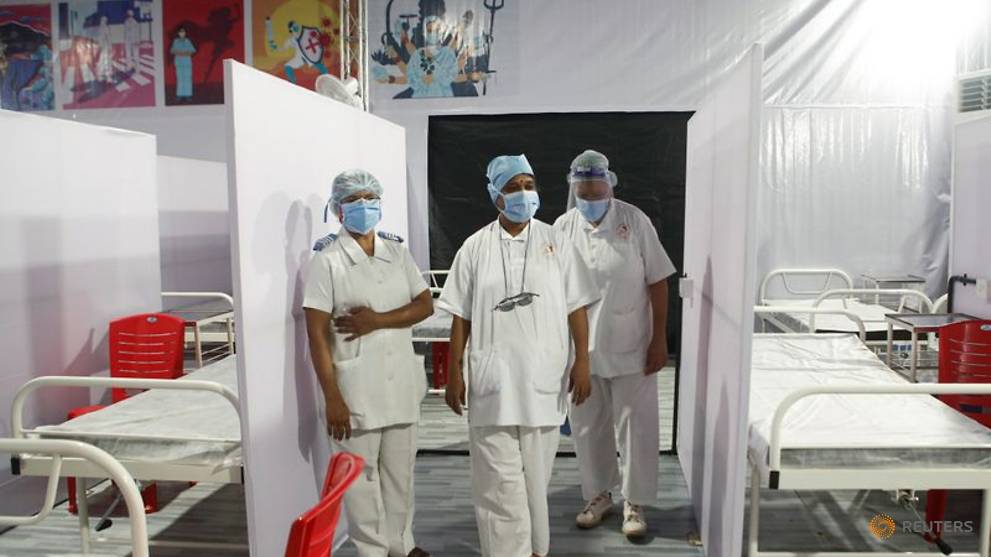
HONG KONG: Hong Kong leader Carrie Lam said on Friday (Jul 31) that elections for the city legislature will be postponed from Sep 6 due to a spike in coronavirus cases, dealing a major blow to the city's pro-democracy opposition.
The new date has been set for Sep 5, 2021.
Lam said the decision was the hardest choice she had made in the last seven months, but said it was aimed at safeguarding people's health.
The decision is supported by the central government, she added.
Having scored an overwhelming win in lower-level district council elections last year, the opposition was banking on keeping up the momentum gathered since anti-government protests erupted a year ago.
READ: Prominent Hong Kong democracy activists barred from election
News of the postponement came as the nomination period for candidates seeking to run in the election closed.
The poll would have been the former British colony's first official vote since Beijing imposed a new security law in late June, which critics say aims to quash dissent in the city.
Supporters of the new security law say it will bring more stability after a year of often-violent anti-government and anti-China unrest, and that it plugs loopholes in national security left by the city's inability to fulfil a constitutional requirement to pass such laws on its own.
READ: COVID-19: Hong Kong backtracks on restaurant dining ban, to allow with restrictions
On Wednesday, Lam warned the city was on the brink of a large-scale COVID-19 outbreak, and urged people to stay indoors as much as possible as strict new measures to curb the disease's spread took effect.
The new regulations ban gatherings of more than two people, dining in restaurants and make the wearing of face masks mandatory in public places, including outdoors. These are the toughest measures introduced in the city since the outbreak.
The government has also tightened testing and quarantine arrangements for sea and air crew members.
Hong Kong has reported more than 3,000 coronavirus cases since January, far lower than in other major cities around the world.
But for the past 10 days running the number of new infections has been in the triple-digits.
At least 68 countries and territories have delayed national or regional polls due to coronavirus since February, according to the International Institute for Democracy and Electoral Assistance.
At least 49 countries and territories have decided to hold national or subnational elections, it said.
READ: Hong Kong is on verge of COVID-19 outbreak that could collapse hospital system, says Carrie Lam
CANDIDATES BARRED FROM STANDING IN ELECTION
Since the imposition of the security law on Jun 30 to punish what China broadly defines as secession, subversion, terrorism and collusion with foreign forces with up to life in prison, the crackdown on opposition forces has intensified.
Twelve opposition candidates, including young activist Joshua Wong but also more moderate, old-guard voices, have been disqualified from contesting the election. More candidates are expected to be barred in coming days.
The reasons cited by the city government for their disqualification included what authorities perceive as subversive intentions, opposition to the new national security law, and a campaign to obtain a majority that can block legislation.
The government denies political censorship or suppression of the right to run for the legislature, where only half of the seats are directly elected, while the other half is stacked with pro-Beijing figures. Critics called the move a political purge.
Hong Kong police have also arrested four students aged 16 to 21 years old on suspicion of threatening national security by allegedly being involved in an online group that pledged to use every means to fight for Hong Kong independence.
Wong said on Friday the reasons for disqualifying him from running in elections for the legislature were "invalid and ridiculous".
He added in a statement that Hong Kong's new national security was a "legal weapon used against dissidents".
"Our resistance will continue on and we hope the world can stand with us in the upcoming uphill battle," he told reporters.
"Beyond any doubt (this) is the most scandalous election fraud era in Hong Kong history," he added.
BOOKMARK THIS: Our comprehensive coverage of the coronavirus outbreak and its developments
Download our app or subscribe to our Telegram channel for the latest updates on the coronavirus outbreak: https://cna.asia/telegram
https://news.google.com/__i/rss/rd/articles/CBMiZWh0dHBzOi8vd3d3LmNoYW5uZWxuZXdzYXNpYS5jb20vbmV3cy9hc2lhL2hvbmcta29uZy1lbGVjdGlvbi1kZWxheS1jYXJyaWUtbGFtLWNvdmlkLTE5LXNwaWtlLTEyOTc5OTE40gEA?oc=5
2020-07-31 10:30:00Z
52780961503444



